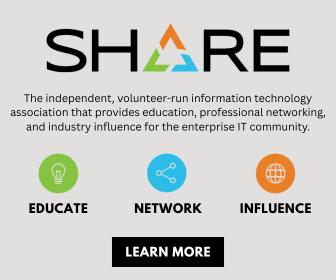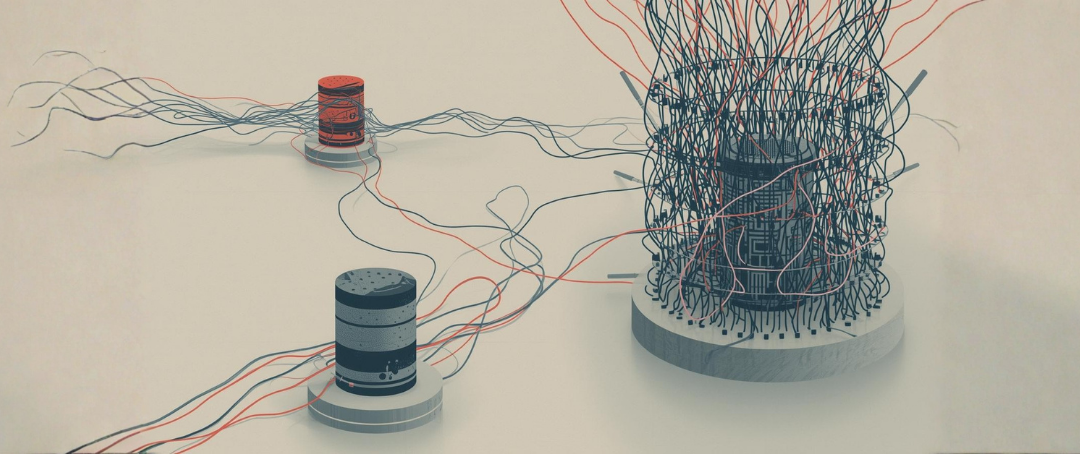Note from the Editor: A Heretic Among Zealots
At Planet Mainframe, we appreciate a fresh perspective, even if it’s a bit spicy. The Mainframe Muggle returns with another installment, offering an unfiltered take on life as a newcomer in the world of mainframes. This time, The Muggle explores what happens when new ideas meet old ways – and the resulting resistance.
Read on, have a laugh or a grumble, and remember: progress usually starts with discomfort.
–Amanda, Managing Editor @ Planet Mainframe
Read The Mainframe Muggle, Part 1
The longer I spend here, the more I realize mainframe isn’t just a technology – it’s a tribe. Worse still, at times it resembles a full-blown religion bordering on becoming a cult.
To the newcomer, it sounds like, “Oh yay, oh yay, behold the wonder of fixed-length text files and the sacred scroll of function keys. Blessed are the SMP/E admins and RACF supers. Cursed be the simpletons who store their text in UTF encoded unix file systems. To EBCDIC be the glory, forever and ever.”
To gain entry into this ecclesiastical order, one must first be vetted and sanctified by the gatekeepers of TTWWADI—That’s The Way We’ve Always Done It.
And then there’s me. The Mainframe Muggle. I’m the curious outsider who walked in bright-eyed and bushy-tailed with ideas born from the world outside the religious order.
I grew up in an age when computers had mice and we used scroll bars to navigate the user interface and extract information. Text interfaces were relegated to the past; something found in computer history classes or conversations with my parents’ generation, nostalgic for a simpler, slower, monochrome world.
Now we live in an era where mice and scroll bars are waning and computers are increasingly driven through speech commands. “Hey AI. Play me my favourite music, order me pizza with extra cheese, and text me when my compile job is finished, OK?”
We live in fast-paced times, and that’s why I chose a career in IT.
We live in fast-paced times, and that’s why I chose a career in IT. I wanted to feel the wind of change before my hair turns grey and I adopt my 9th stray cat.
So what the flip is going on in planet mainframe (pun very much intended)?
The Zealots and the Heretic
Before you fire up your flamethrowers and exile me to legacy purgatory, let’s be clear: I didn’t come here to burn your church down. I’m not here to erase everything you’ve built. I fully respect that you’ve constructed and now steward the world’s financial backbone and that, yes, civilization would probably crumble if your systems were unplugged.
Still, I don’t want to be endlessly lectured on mainframe history and be told that everything is sacred and nothing can be questioned. The world has changed since you punched your first card or coded your first ISPF macro, and so must you.
As others have said many times, the problem with mainframe modernization isn’t the technology, it’s the people. And actually, dear sysprog, the problem? It’s more than likely you.
Wow, that felt good.
But seriously, folks. If you’ve read this far, you deserve a vent. Go ahead and flame me in the comments. Let off some steam.
After that and your afternoon nap, do come back and read on. I want to share what I believe is the path forward in our shared dilemma.
First, let’s agree: what’s broken needs fixing and what’s working can be left alone. Simple enough.
Let’s agree: what’s broken needs fixing and what’s working can be left alone.
Also, a gentle reminder: my generation and I are the future stewards of this platform. You won’t be around forever. So logically, making us happy matters more for long-term survival than preserving your comfort zone. Glad we’re aligned.
The languages
Sigh. Yawn. Wake me up before you COBOGOGO.
I am bored with hearing how great COBOL is. I’m also tired and annoyed having to spell it in uppercase just because it’s an ACRONYM. From henceforth, anyone who berates me for incorrect grammar shall be known as a TOADPROG.
The reason all your stuff is written in Cobol is because there wasn’t much else to choose from 60 years ago. It was either that or assembler. Cobol was cool back then, but so were punch cards and CRT terminals. I love black and white tech photos as much as the next retro IT nerd. And the moon landings piloted by analog machines and sextants were a great moment in history. You might be surprised, mi amigo, that since then, humanity has been busy and invented alternatives.
Today we have popular languages like Java (which is, let’s face it, now middle-aged), Python, Node.js, Go, and more. Oh, and the reason people like using them is that they’re pretty good. Imagine creating a program that is 10% your stuff, and 90% proven stuff that other smart people have created and shared. What if that proven stuff is even free and open source?
Compare that to your Cobol that not only isn’t ZIIP eligible, you’ve possibly lost the source code for or have no idea how it works without using a spirit medium to contact the original author.
Is Cobol actually that great? When lined up alongside newer languages, are you happy just sitting on your horse, looking up at the freeway traffic, and lamenting the invention of the motorcar?
What is your barrier to using modern languages?
Is it that you’re scared?
If you still think open source languages and tools are unsupported or riddled with malware, it’s time for a reality check. Many mainframe vendors not only support open source, but they actively bundle it into their software stacks.
Many mainframe vendors not only support open source, but they actively bundle it into their software stacks.
In fact, there’s solid evidence that open source code can be more secure and less vulnerable than proprietary systems relying on outdated “security through obscurity” models—like your 80,000-line Cobol monolith or that JCL masterpiece held together with undocumented hope.
Maybe your end game is to retire with a head full of secrets and get hired back as a consultant—because only you know how to coax life out of that mission critical gnarly exit routine you wrote in 1984.
Maybe you’re quietly afraid your brain isn’t as bendy as it once was, back when you learned JCL from a punch card binder the size of a cinder block. Maybe you’re wrestling with impostor syndrome and dreading the idea of being laughed at for fumbling your first Python script.
If that’s the case: PLEASE don’t be afraid. It’s not that hard. And honestly, I’ve not yet come across anyone who has used Python or Java and wished they hadn’t started.
Remember the thrill you had when you wrote your first piece of automation with JCL or REXX? You can feel that again. That “Wow, Go me!” moment can be yours again. Oh, and for all your JCL illuminati out there, even Frederick Brooks, the hallowed creator himself, admitted it sucks. Proof. EXEC PGM=LMAOHAHA.
Now we’re all agreed, let’s shake on this as fellow mainframers.
Help me help you to bring your beloved platform into the present. Take a long look at yourself in the mirror and tell yourself to stop being passive-aggressive about change. Modernization is possible, mainframe hardware has evolved (as IBM constantly tells us).
Help me help you to bring your beloved platform into the present.
Let’s not condemn this excellently engineered platform to a slow extinction from your own stubbornness. As a wise fortune cookie once told me, ‘Learn backwards. Live forwards.’
I know I’m ranting. And I’m not sorry.
I believe in this platform. I want to embrace the future and close the skills gap. I want ya’ll to enjoy your retirement playing golf, spoiling your grandkids, and arguing about your favorite 3270 emulator on Boomerbook.
So what’s it gonna be? Will you help me succeed? Fight me? Or get out of the way?
I’m not going anywhere.
I’m just warming up.
To be continued…









Just COBOL or Assembly??
Fortran was available and PL/1 was introduced in 1964!
Ow! Ow! Ow! My sides are hurting, I laughed so much! This is so funny, yet so true. This series (it had better be a series, right?) so reflects my experiences. It’s not the technology, it’s the Luddites that prevent progress. JCL? Not worth the punched cards it was written on! COND=(4,LT)? WTF? “Do or don’t do this if the condition code is or isn’t less than 4?” Yet like religious cultists wandering the planet from conference to conference, proselytizing with their OS/360 Principles of Operation, mainstream mainframe missionaries are out of touch with modern methods of machine interaction. Believe it or not, UI and UX are not new assembler instructions delivered with the Z17 (though they probably ought to have been).
Anyway, this is only my comment, not my blog post. I could carry on…
Well written. More, please!
(1) (a) “What’s broken needs fixing…” and (b) “… what’s working can be left alone”.
Agree on (a), but *nothing* should be “left alone”. Something which can be made *better* but is instead “left alone” just because it “works”, is as bad as leaving something “broken” instead of fixing it. It’s largely this type of thinking that’s brought on our reputation for ossification.
(2) The trick is knowing the difference between what’s actually “better”, and what is just a “fad”! The history of IT is littered with failed ideas marketed as breakthroughs (because they were *different*) but were actually worse. Many of us were fooled and lost big chasing after novelty.
(3) Change for the sake of change [cf “DOGE (*)] is *not* a good strategy for any Enterprise that wants to maintan a stable foundation. Yet this is essentially what the marketing frenzy around Mainframe “modernization” is all about. We even see ads claiming “modernization” can be achieved by just by moving everything *off* the mainframe to an x86 server and running it all with an emulator. HA! That’s “modernization”?? THAT’S BS!!
Change must be justified, and based on fact, not misinformed opinion. And *especially* not just because some quick-profit huckster says it’s “the next big thing”. We have to ask ourselves, Is actually “better”? And why, *exactly*?? When we do, all those snappy answers so many assume as “obvious” are actually false and shallow:
It’s “old” / It can’t do what we need / It cost too much / They don’t teach it in college / Everyone who knows it will soon be gone, etc.
(4) When you break it down and carefully consider the alternatives, there are plenty of cases where it would be “better” for newbies to learn a few concepts and techniques from so-called “Luddites” than turn everything upside down and inside out just because newbies think they already know it all and refuse to learn something “new” (to them).
(5) Derogative labelling (from both sides – e.g. “Luddites” vs “Newbies”) doesn’t help either.
(*) DOGE will be remembered, if at all, as a flash-in-the pan whose actual achievements in “efficiency” (defined as “doing the same or more work with less effort”) were a net negative.